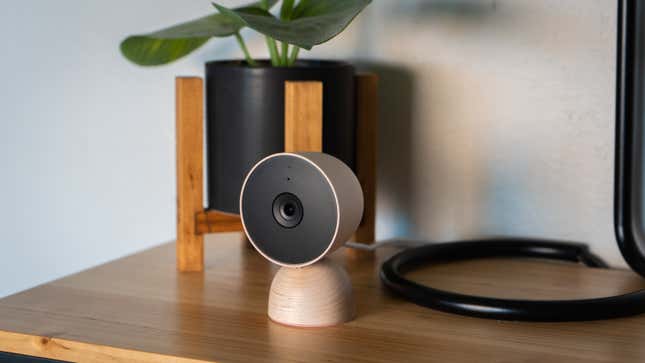
Smart home device makers are all on board with a new standard called Matter that will make all of your stuff play nicely together, and Google is now working to get developers on board with that vision. It’s also rebranding its smart home ecosystem to Google Home, which will incorporate everything from its smart speakers and displays to Android and its Nest security devices.
The search giant announced it would be updating its Nest devices to support the new smart home standard back at Google I/O. But for buyers to get full use out of those devices once Matter has launched, Google will also need developers.
Matter was born out of Project Connect Home over IP, or CHiP. Google was one of its original backers, though Apple, Amazon, and others have also committed to its development. Matter uses a combination of Ethernet, wifi, Bluetooth LE, and Thread, which is a low-power mesh networking technology that’s been in use in Google’s smart home products for years.

Starting next year, developers can access the Google Home Developer Center, which features all the requisite SDKs and plug-ins for making smart home gadgets play nice with Matter and the rest of the Google Home ecosystem, too. It will feature programmable Google Home actions, including custom prompts for devices within the app so that new users will have a better idea of where to start. Google will also include toolkits for creating automations and routines, along with the ability to make custom routine suggestions.
The Google Home Device SDK will make it so smart home device makers can not only adopt Matter, but also seamlessly fit into Google Home’s ecosystem with easy setup and Google Assistant integration. Everything will work together, and perhaps. more importantly for Google, everything will work with Google Home.
To further ensure adoption of the Matter standard, Google also announced that it’s building Matter directly into Android by supporting the protocol through Google Play Services. This will enable you to connect new Matter devices over wifi and Thread more easily. You’re also likely to see more controls pop up in Android’s relocated device shortcuts later next year, which were moved from the Power Menu to Quick Settings in Android 12.
Though many of these announcements won’t immediately affect your smart home, they offer a glimpse at what the industry is attempting behind the scenes to ensure that Matter’s arrival in 2022 actually makes things easier and not more complicated.
If you’re still wondering where Google might fit into your smart home, the search giant launched a large gadget database earlier this year to help you find devices. In the end, all this seamless integration with Matter is to ensure your Google Home remains a Google home.